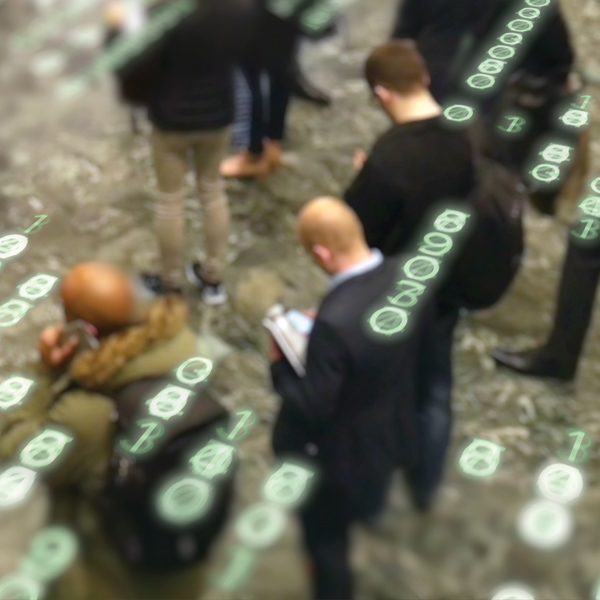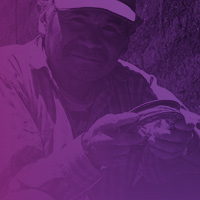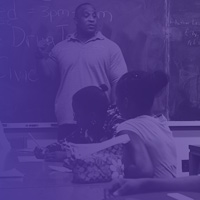-
Grants
25
-
Total Awarded
$6,749,127
-
Years
1980 - 2022
-
Categories
Grants
Columbia University, founded in 1754 and based in New York, NY, is one of the world's most important centers of research and at the same time a distinctive and distinguished learning environment for undergraduates and graduate students in many scholarly and professional fields. Columbia World Projects mobilizes the university’s researchers and scholars to work with governments, organizations, businesses, and communities to tackle global challenges. This grant provides Columbia World Projects with flexible support.
The Data Science Institute at Columbia University seeks to advance the state of the art in data science; to transform all fields, professions, and sectors through the application of data science; and, to ensure the responsible use of data to benefit society. The award supports the Institute's Lecture Series on Race and Data Science, a series that explores topics such as bias in algorithmic systems, structural racism and virtual reality, income equality, incarceration, immigration, health disparities, and ethical artificial intelligence.
The Arnold A. Saltzman Institute of War and Peace Studies at Columbia University launched in 1951. This award provides partial funding for the Institute’s Summer Workshop on Analysis of Military Operations and Strategy (SWAMOS), a summer program that seeks to produce a new generation of scholars sufficiently grounded in strategic studies. The workshop helps bridge the communication gap between academia and theory on the one hand, and government and national security policy on the other.
Established in 2010, the International Security Studies Forum (ISSF) at Columbia University is a list-serv to increase the speed of communication and debate in the security studies field. It is a collaboration between the International Security Studies Section of the International Studies Association, three of the leading journals in the security studies field (International Security, Security Studies, and Journal of Strategic Studies) and several major university centers. This award contributes to list-serv activities, the development of a new website and social media strategy, and meetings to determine a future funding stream. The intended outcome is to better connect the security studies community, promote real-time debate, and ultimately increase the likelihood that this debate can impact the development of current policy.
With the recommended MacArthur grant, the Columbia Global Policy Initiative will provide logistical and substantive support for the Special Representative of the Secretary-General for International Migration to advance an intergovernmental initiative to improve protections for migrants in crisis situations and pursue other targeted improvements in global migration policy. This work includes advocating for the principles, roles, and responsibilities that will guide how the international community addresses the needs of migrants affected by humanitarian crises.
Columbia University Law School is internationally renowned for its rigorous, global and interdisciplinary curriculum and its leadership in the legal community. Columbia will use this grant to conduct research and analysis on the law and policy responses to Miller v. Alabama, the 2012 U.S. Supreme Court decision that abolished juvenile mandatory life without parole sentences, and to coordinate subsequent communications activities to educate stakeholders on the implications of the research and further efforts to ensure developmentally appropriate responses to youth who violate the law.
Founded in 1951, the Arnold A. Saltzman Institute of War and Peace Studies’ members conduct a wide variety of instructional activities through the Department of Political Science and the School of International and Public Affairs at Columbia University. This grant would provide funding for the Institute’s Summer Workshop on Analysis of Military Operations and Strategy, a program that seeks to foster scholars sufficiently grounded in strategic studies.
Based at Columbia University, the Declassification Engine is a new multidisciplinary initiative bringing together social scientists and data scientists to help break the logjam within the U.S. government over how to manage official secrecy in the age of "big data." By developing new computational methods and creating open source tools, it seeks to demonstrate how technology can ensure maximum efficiency, transparency, and accountability consistent with national security imperatives, with the aim of helping to improve and expedite the declassification process. At the same time, this technology will help citizens take ownership of the public record and hold government more accountable on the choices made about secrecy.
Founded in 1951, the Arnold A. Saltzman Institute of War and Peace Studies’ members conduct a wide variety of instructional activities through the Department of Political Science and the School of International and Public Affairs at Columbia University. This grant would provide funding for the Institute’s Summer Workshop on Analysis of Military Operations and Strategy, a program that seeks to foster scholars sufficiently grounded in strategic studies. This grant aligns with MacArthur’s future funding area to strengthen the teaching of grand strategy. Funds would be used for lecturers, foreign student and faculty participation, small group dinners, and administrative support.
For establishing a Center for Human Rights Documentation and Research to house the archives of leading human rights organizations.
To help developing countries explore economic policy alternatives (over two years).
To support a survey to monitor trends in children's access to parental and community resources in Chicago
To support participation in the Consortium on the Biology of Parasitic Diseases.
To support participation in the Consortium on the Biology of Parasitic Diseases.
For "Detente and Reciprocity."
To support institutional fellowships in peace and security studies and related research and support activities.
For research equipment for work on the biology of parasitic diseases.
To support a conference on the European left and U.S. foreign policy.
For "Detente and Reciprocity," by Deborah Larson.
To support a conference on the 27th Congress of the Communist Party of the Soviet Union, sponsored by the Averell Harriman Institute for Advanced Study of the Soviet Union.
To support effective and sustained collaboration among researchers from different fields on problems of international security (over three years); for graduate student fellowships in the international security field (over three years).
To support participation in the Consortium on the Biology of Parasitic Diseases.
For research equipment for work with the Consortium on the Biology of Parasitic Diseases.
To support the study of neural development and learning in immature organisms.
To support a training program and lecture series in neurobiology and behavior.








